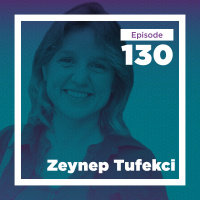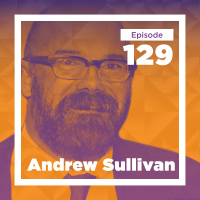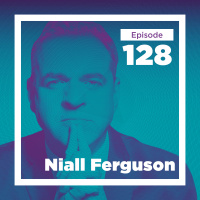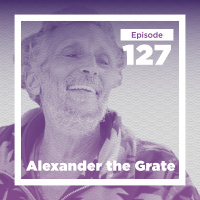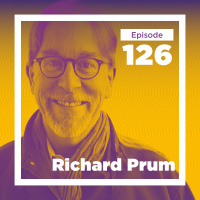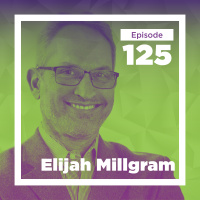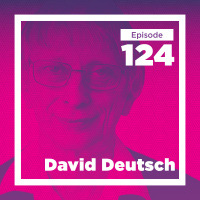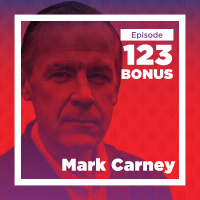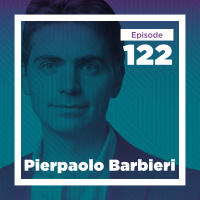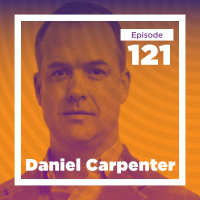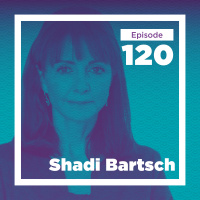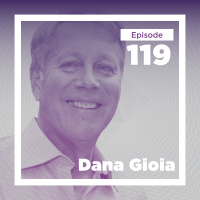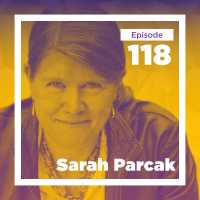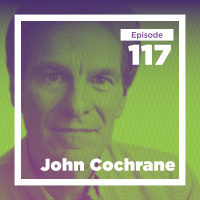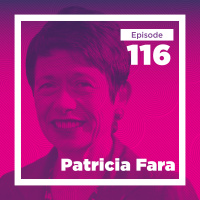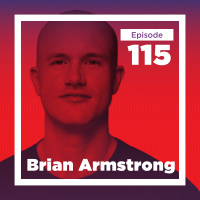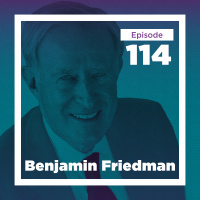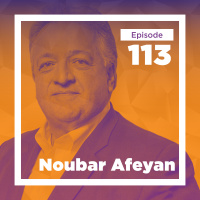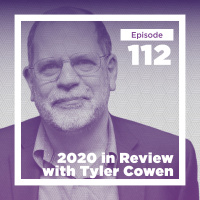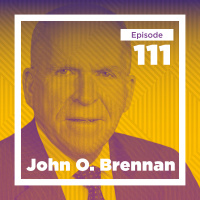Synopsis
Tyler Cowen engages todays deepest thinkers in wide-ranging explorations of their work, the world, and everything in between. New conversations every other Wednesday. Subscribe wherever you get your podcasts.
Episodes
-
Zeynep Tufekci on the Sociology of The Moment (Live)
25/08/2021 Duration: 01h05minWhen Zeynep Tufekci penned a New York Times op-ed at the onset of the pandemic challenging the prevailing public health guidance that ordinary people should not wear masks, she thought it was the end of her public writing career. Instead, it helped provoke the CDC to reverse its guidance a few weeks later, and medical professionals privately thanked her for writing it. While relieved by the reception, she also saw it as a sign of a deeper dysfunction in the scientific establishment: why should she, a programmer and sociologist by training, have been the one to speak out rather than a credentialed expert? And yet realizing her outsider status and academic tenure allowed her to speak more freely than others, she continued writing and has become one of the leading public intellectuals covering the response to COVID-19. Zeynep joined Tyler to discuss problems with the media and the scientific establishment, what made the lab-leak hypothesis unacceptable to talk about, how her background in sociology was key to
-
Andrew Sullivan on Braving New Intellectual Journeys
11/08/2021 Duration: 55minUpon learning he was HIV positive in 1993, Andrew Sullivan began writing more than he ever had before. Believing that he didn’t have long to live, he wanted to leave behind a book detailing his best argument for refocusing the gay rights movement on marriage equality and military service. Three decades later and Sullivan has not only lived to see the book published, but also seen the ideas in it gain legal and cultural acceptance. This, along with the fact that the pace and influence of his writing has continued apace, qualifies him in Tyler’s estimation as the most influential public intellectual of his generation. Andrew joined Tyler to discuss the role of the AIDs epidemic in achieving marriage equality, the difficulty of devoutness in everyday life, why public intellectuals often lack courage, how being a gay man helps him access perspectives he otherwise wouldn’t, how drugs influence his ideas, the reasons why he’s a passionate defender of SATs and IQ tests, what Niall Ferguson and Boris Johnson were l
-
Niall Ferguson on Why We Study History
28/07/2021 Duration: 54minWhile the modern historical ethos can be obsessed with condescending to the past based on our current value system, Scottish-born historian Niall Ferguson has aimed to set himself apart with his willingness to examine the past in its own context. The result is some wildly unpopular opinions such as “The British Empire was good, actually” and several wildly popular books, such as his latest Doom: The Politics of Catastrophe. Niall joined Tyler to discuss the difference between English and Scottish pessimism, his surprise encounter with Sean Connery, what James Bond and Doctor Who have in common, how religion fosters the cultural imagination to produce doomsday scenarios, which side of the Glorious Revolution he would have been on, the extraordinary historical trajectory of Scotland from the 17th century through the 18th century, why historians seem to have an excessive occupation with leadership, what he learned from R.G. Collingwood and A.J.P. Taylor, why American bands could never quite get punk music right
-
Alexander the Grate on Life as an NFA
14/07/2021 Duration: 44minAlexander the Grate has spent 40 years – more than half of his life – living on the streets (and heating grates) of Washington, DC. He prefers the label NFA (No Fixed Address) rather than “homeless,” since in his view we’re all a little bit homeless: even millionaires are just one catastrophe away from losing their mansions. It’s a life that certainly comes with many challenges, but that hasn’t stopped him from enjoying the immense cultural riches of the capital: he and his friends have probably attended more lectures, foreign films, concerts, talks, and tours at local museums than many of its wealthiest denizens. The result is a perspective as unique as the city itself. Alexander joined Tyler to discuss the little-recognized issue of “toilet insecurity,” how COVID-19 affected his lifestyle, the hierarchy of local shelters, the origins of the cootie game, the difference between being NFA in DC versus other cities, how networking helped him navigate life as a new NFA, how the Capitol Hill Freebie Finders Fello
-
Richard Prum on Birds, Beauty, and Finding Your Own Way
30/06/2021 Duration: 50minRichard Prum really cares about birds. Growing up in rural Vermont, he didn’t know anyone else interested in birding his own age. The experience taught him to rely on his own sense of curiosity and importance when deciding what questions and interests are worth studying. As a result, he has pursued many different paths of research in avian biology — such as behavioral evolution, where feathers come from, sexual selection and mate choice — many of which have led to deep implications in the field. In 2017, Tyler agreed with several prominent outlets that Prum’s book The Evolution of Beauty was one of the best books of the year, writing that it “offers an excellent and clearly written treatment of the particulars of avian evolution, signaling theory, and aesthetics, bringing together some disparate areas very effectively.” Richard joined Tyler to discuss the infidelity of Australian birds, the debate on the origins of avian flight, how the lack of a penis explains why birds are so beautiful, why albatrosses ca
-
Elijah Millgram on the Philosophical Life
16/06/2021 Duration: 01h08minWhat can studying the lives of philosophers tell us about how to organize and interpret our own lives? Elijah Millgram is a professor of philosophy at the University of Utah whose research focuses on the theory of rationality. His latest book, John Stuart Mill and The Meaning of Life, analyzes the relationship between the ideas of the famous theorist and their impacts on Mill’s life. His forthcoming book examines the life and work of Frederich Nietzsche through a similar lens, combining philosophical analysis and biography. Elijah joined Tyler to discuss Newcomb’s paradox, the reason he doesn’t have an opinion about everything, the philosophy of Dave Barry, style and simulation theory, why philosophers aren’t often consulted about current events, his best stories from TA-ing for Robert Nozick, the sociological correlates of knowing formal logic, the question of whether people are more interested in truth or being interesting, philosophical cycles, what makes Nietzsche important today, the role that meaning c
-
David Deutsch on Multiple Worlds and Our Place in Them
02/06/2021 Duration: 01h01minTyler describes Oxford professor and theoretical physicist David Deutsch as a “maximum philosopher of freedom” with no rival. A pioneer in the field of quantum computing, Deutsch subscribes to the multiple-worlds interpretation of quantum mechanics. He is also adamant that the universe (or multiverse) is not incomprehensible – believing that the multiverse and human beings within it have maximum freedom. He joined Tyler to discuss the importance of these principles for understanding the nature of reality and our place in it. They discuss the metaphysics of Star Trek transporters, how we can know the laws of physics for the multiverse, what geological strata can illustrate to us about the nature of “splitting” universes, why the “Everett universe” is a misnomer, the factors that differentiate humans from all other species, why he believes the universe is comprehensible – but can never be understood fully, the paradoxes of self-reference, the importance of interference experiments, the sociological reasons more
-
Mark Carney on Central Banking and Shared Values
26/05/2021 Duration: 54minAs a Canadian economist who once served as the Governor of the Bank of England, Mark Carney has had many occasions to reflect on the importance of values. Whether it’s ingratiating himself as a public servant in a foreign country, managing a central bank, or addressing climate change, he’s seen the power of shared objectives and the importance of value alignment in addressing critical and complex problems. As the global economy attempts to recover from the COVID-19 pandemic, Carney has published these lessons in a new book, Values: Building a Better World for All. In this special bonus episode, Mark joined Tyler to discuss why he went into economics instead of marine biology, the temperamental differences between ice hockey goalies and central bankers, why it’s important that central bankers plan for failure, what he learned from his father’s work with indigenous Canadians, how growing up near Alberta’s tar sands made him understand the power of the market, the biggest misconception people have about Goldman
-
Pierpaolo Barbieri on Latin American FinTech
19/05/2021 Duration: 56minGifted young Argentines tend to leave home to “make it in America” and never look back, but after earning a degree from Harvard, writing a book about the Spanish Civil War, and living in the United States for 12 years, Pierpaolo Barbieri has returned to Argentina. And he’s bringing foreign capital and talented expats with him. Pierpaolo’s FinTech startup Ualá works to bring universal banking to a Latin American market in which huge swaths of the population are still stuck using cash for everything. By giving the working classes power over their own money, he hopes to produce greater prosperity and social mobility in his home country and beyond. Pierpaolo joined Tyler to discuss why the Mexican banking system only serves 30 percent of Mexicans, which country will be the first to go cashless, the implications of a digital yuan, whether Miami will overtake São Paolo as the tech center of Latin America, how he hopes to make Ualá the Facebook of FinTech, Argentina’s bipolar fiscal policy, his transition from histo
-
Daniel Carpenter on Smart Regulation
05/05/2021 Duration: 01h08minDaniel Carpenter is one of the world’s leading experts on regulation and the foremost expert on the US Food and Drug Administration. A professor of Government at Harvard University, he’s conducted extensive research on regulation and government organizations, as well as on the development of political institutions in the United States. His latest book Democracy by Petition: Popular Politics in Transformation, details the crucial role petitions played in expanding the franchise and shaping modern America. Daniel joined Tyler to discuss how to reform the hiring and firing practices for public employees, what the history of the postal service can teach us about internet regulation, the problem with the term “institutional capture”, what the FDA got right and wrong regarding COVID-19 vaccines, how nationalism is affecting vaccine rollout, why vaccinating the young is crucial for herd immunity, the drawbacks of a “Good Housekeeping” model of the FDA, how black box drug labels sometimes change behavior for the wor
-
Shadi Bartsch on the Classics and China
21/04/2021 Duration: 01h27sA self-professed nerd, the young Shadi Bartsch could be found awake late at night, reading Latin under the covers of her bed by flashlight. Now a professor of Classics at the University of Chicago, Dr. Bartsch is one of the best-known classicists in America and recently published her own translation of Virgil’s Aeneid. Widely regarded for her writing on Seneca, Lucan, and Persius, her next book focuses on Chinese interpretations of classic literature and their influence on political thought in China. Shadi joined Tyler to discuss reading the classics as someone who is half-Persian, the difference between Homer and Virgil’s underworlds, the reasons so many women are redefining Virgil’s Aeneid, the best way to learn Latin, why you must be in a room with a native speaker to learn Mandarin, the question of Seneca’s hypocrisy, what it means to “wave the wand of Hermes”, why Lucan begins his epic The Civil War with “fake news”, the line from Henry Purcell’s aria that moves her to tears, her biggest takeaway from be
-
Dana Gioia on Becoming an Information Billionaire
07/04/2021 Duration: 01h18minBefore he was California Poet Laureate or leading the National Endowment for the Arts, Dana Gioia marketed Jell-O. Possessing both a Stanford MBA and a Harvard MA, he combined his creativity and facility with numbers to climb the corporate ladder at General Foods to the second highest rung before abruptly quitting to become a poet and writer. That unique professional experience and a lifelong “hunger for beauty” have made him into what Tyler calls an “information billionaire,” or someone who can answer all of Tyler’s questions. In his new memoir, Dana describes the six people who sent him on this unlikely journey. In this conversation, Dana and Tyler discuss his latest book and more, including how he transformed several businesses as a corporate executive, why going to business school made him a better poet, the only two obscene topics left in American poetry, why narrative is necessary for coping with life’s hardships, how Virgil influenced Catholic traditions, what Augustus understood about the cultural po
-
Sarah Parcak on Archaeology from Space
24/03/2021 Duration: 01h04minWhat can new technology tell us about our ancient past? Archaeologist and remote sensing expert Sarah Parcak has used satellite imagery to discover over a dozen potential pyramids and thousands of tombs from ancient Egypt. A professor of anthropology and founding director of the Laboratory for Global Observation at the University of Alabama at Birmingham, Sarah’s work combines technology, historical study, and cultural anthropology to advance discoveries about the past while navigating the political and ethical dilemmas that plague excavation work today. She joined Tyler to discuss what caused the Bronze Age Collapse, how well we understand the level of ancient technologies, what archaeologists may learn from the discovery of more than a hundred coffins at the site of Saqqara, how far the Vikings really traveled, why conservation should be as much of a priority as excavation, the economics of looting networks, the inherently political nature of archaeology, Indiana Jones versus The Dig, her favorite contempor
-
John Cochrane on Economic Puzzles and Habits of Mind
10/03/2021 Duration: 58minWhat unites John Cochrane the finance economist and “grumpy” policy blogger with John Cochrane the accomplished glider pilot? For John, the answer is that each derives from the same habit of mind which seeks to reduce things down to a few fundamental principles and a simple logical structure. And thus, piloting a glider can be understood as an application of optimal portfolio theory, and all of monetary policy can be made to fit within the structure of a single equation. John joined Tyler to apply that habit of mind to a number of puzzles, including why real interest rates don’t equalize across countries, what explains why high trading volumes and active management persist in finance, how the pandemic has affected his opinion of habit formation theories, his fiscal theory of price level and inflation, the danger of a US sovereign debt crisis, why he thinks Bitcoin will eventually die, his idea for health-status insurance, becoming a national gliding champion, how a Renaissance historian for a father and a boo
-
Patricia Fara on Newton, Scientific Progress, and the Benefits of Unhistoric Acts
24/02/2021 Duration: 57minPatricia Fara is a historian of science at Cambridge University and well-known for her writings on women in science. Her forthcoming book, Life After Gravity: Isaac Newton's London Career, details the life of the titan of the so-called Scientific Revolution after his famous (though perhaps mythological) discovery under the apple tree. Her work emphasizes science as a long, continuous process composed of incremental contributions–in which women throughout history have taken a crucial part–rather than the sole province of a few monolithic innovators. Patricia joined Tyler to discuss why Newton left Cambridge to run The Royal Mint, why he was so productive during the Great Plague, why the “Scientific Revolution” should instead be understood as a gradual process, what the Antikythera device tells us about science in the ancient world, the influence of Erasmus Darwin on his grandson, why more people should know Dorothy Hodgkin, how George Eliot inspired her to commit unhistoric acts, why she opposes any kind of
-
Brian Armstrong on the Crypto Economy
10/02/2021 Duration: 54minBrian Armstrong first recognized the potential of cryptocurrencies after witnessing firsthand the tragic consequences of hyperinflation in Argentina. Coinbase, the company he co-founded, aims to provide the primary financial accounts for the crypto economy. Their success in accomplishing this, he says, is due as much to their innovative approach to regulation as it is anything technological. Brian joined Tyler to discuss how he prevents Coinbase from being run by its lawyers, the value of having a mission statement, what a world with many more crypto billionaires would look like, why the volatility of cryptocurrencies like Bitcoin is more feature than bug, the potential for scalability in Ethereum 2.0, his best guess on the real identity of Satoshi, the biggest obstacle facing new charter cities, the meta rules he’d institute for new Martian colony, the importance of bridging the gap between academics and entrepreneurs, the future of crypto regulation, the benefits of stablecoin for the unbanked, his stronges
-
Benjamin Friedman on the Origins of Economic Belief
27/01/2021 Duration: 01h07minBenjamin Friedman has been a leading macroeconomist since the 1970s, whose accomplishments include writing 150 papers, producing more than dozen books, and teaching Tyler Cowen graduate macroeconomics at Harvard in 1985. In his latest book, Religion and the Rise of Capitalism, Ben argues that contrary to the popular belief that Western economic ideas are a secular product of the Enlightenment, instead they are the result of hotly debated theological questions within the English-speaking Protestant world of thinkers like Adam Smith and David Hume. Ben joined Tyler to discuss the connection between religious belief and support for markets, what drives varying cultural commitments to capitalism, why the rate of growth is key to sustaining liberal values, why Paul Volcker is underrated, how coming from Kentucky influences his thinking, why annuities don’t work better, America’s debt and fiscal sustainability, his critiques of nominal GDP targeting, why he wouldn’t change the governance of the Fed, how he maintain
-
Noubar Afeyan on the Permission to Leap
13/01/2021 Duration: 55min“The world of innovation is very much one of toggling between survival and then thriving,” says Noubar Afeyan. Co-founder of Moderna and CEO of Flagship Pioneering, the biomedical innovator, philanthropist, and entrepreneur credits his successes to his “paranoid optimism” shaped by his experiences as an Armenian-American. Exceptional achievements like the rapid development of the COVID-19 vaccine, he believes, aren’t usually unpredictable but rather the result of systematic processes that include embracing unreasonable propositions and even unreasonable people. He joined Tyler to discuss which aspect of entrepreneurship is hardest to teach, his predictions on the future of gene editing and CRISPR technology, why the pharmaceutical field can’t be winner takes all, why “basic research” is a poor term, the secret to Boston’s culture of innovation, the potential of plant biotech, why Montreal is (still) a special place to him, how his classical pianist mother influenced his musical tastes, his discussion-based ap
-
Conversations with Tyler 2020 Retrospective
30/12/2020 Duration: 53minWant to support the show? Visit conversationswithtyler.com/donate. On this special year-in-review episode, producer Jeff Holmes sat down with Tyler to talk about the most popular—and most underrated—episodes, Tyler's personal highlight of the year, how well state capacity libertarianism has fared, a new food rule for ordering well during the pandemic, how his production function changed this year, why he got sick of pickles, when he thinks the next face-to-face recording will be, the first thing he’ll do post vaccine, an update on his next book, and more. Read a full transcript enhanced with helpful links, or watch the full video. Recorded December 1st, 2020 Other ways to connect Follow us on Twitter and Instagram Follow Tyler on Twitter Email us: cowenconvos@mercatus.gmu.edu Subscribe at our newsletter page to have the latest Conversations with Tyler news sent straight to your inbox.
-
John O. Brennan on Life in the CIA
16/12/2020 Duration: 58minWant to support the show? Visit conversationswithtyler.com/donate. Growing up in a working-class city in New Jersey, John Brennan’s father was an Irish immigrant who always impressed upon his children how grateful they should be to be American citizens. That deeply-instilled patriotism and the sense of right and wrong emphasized by his Catholic upbringing would lead John first to become an intelligence officer and then eventually Director of the CIA. His new memoir, which Tyler found substantive on every page, recounts that career journey. John joined Tyler to discuss what working in intelligence taught him about people’s motivations, how his Catholic upbringing prepared him for working in intelligence, the similarities between working at the CIA and entering the priesthood, his ability to synthetize information from disparate sources, his assessment on the possibility of alien life, the efficacy of personality tests and polygraphs, why CIA agents are so punctual, how the CIA plans to remain a competitive r

